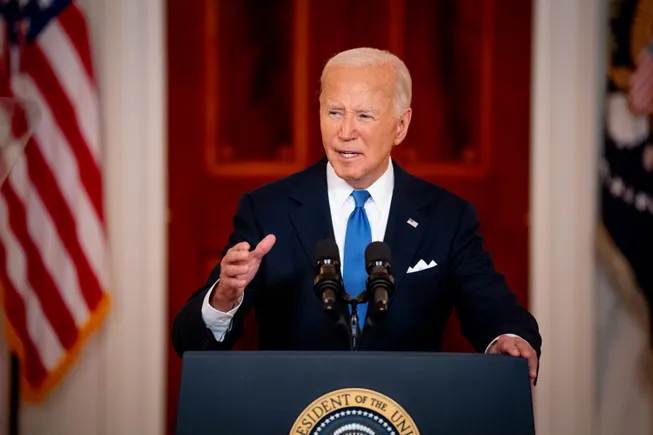President Joe Biden signed an executive order Sept. 6 calling on federal agencies to adopt a series of “high-road labor standards,” according to an announcement from the White House, continuing the administration’s push toward expanding the federal workforce while pushing certain standards.
The announcement calls the move the “first in history to specify a clear list of labor standards that all Federal agencies should look to prioritize.”
The federal government considers itself a “model employer,” in that private sector employers often follow suit when it moves to change standards. The “Good Jobs Executive Order” calls upon agencies to adopt a number of standards around wages, union organizing, workforce development and workplace safety.
Among those standards, agencies are directed to prioritize project labor agreements, community benefits agreements, voluntary union recognition and neutrality in regard to union organizing when such takes place, the announcement said. The EO also directs agencies to “consider incentivizing specific high-wage standards for manufacturing grants,” similar to Davis-Bacon rules for construction jobs, which require contractors to pay workers “no less than the locally prevailing wage,” according to the U.S. Department of Labor.
Associated Builders and Contractors opposed the order, calling it exclusionary and saying it removed competition and favored union builders.
“The executive order will undermine the efficient and economical delivery of taxpayer-funded infrastructure, clean energy and manufacturing projects and is consistent with the Biden-Harris administration’s politically motivated policy schemes,” said Ben Brubeck, ABC vice president of regulatory, labor and state affairs, in a statement.
He added he looked forward to reviewing the official text to see if it would be challenged in court.
Indeed, unions do feel the order favors them and their workers, but also other U.S. workers looking to support themselves.
Mark McManus, general president of the United Association of Union Plumbers and Pipefitters, praised the executive order, which Biden signed at his union’s chapter, Local 190, in Ann Arbor, Michigan, on Sept. 6. McManus called Biden, “the most pro-worker and pro-union president,” a title he’s worn with pride.
“With incentives to strengthen our gold-standard registered apprenticeship programs, to guarantee the rights of all workers to collectively bargain for a better future, and to expand family-sustaining wages for all, this Executive Order will help ensure all Americans have a fair shot at success,” McManus said in a statement.
Apprenticeship rule
Workforce development through registered apprenticeships was also mentioned as a priority for federal agencies — a focus of the Biden administration, which has invested in creating training pipelines and tightening registered apprenticeship standards to ensure the program retains its high quality, leaders previously said.
That apprenticeship rule has come under fire from Republicans, who say the rule will disincentivize apprenticeships due to heavy administrative requirements.
The executive order also states federal agencies should encourage contractors to focus on equitable and fair hiring as well as support workplace safety by prioritizing solid reporting structures.
To that end, the administration has pushed for an extreme heat standard. The Occupational Safety and Health Administration proposed such a rule earlier this summer and will be taking comments until Dec. 30.
The Investing in Good Jobs Task Force is responsible for ensuring these standards are implemented, according to the announcement, and will be co-chaired by the Secretary of Labor, currently Julie Su, who is serving as acting secretary.
Construction Dive Editor Zach Phillips contributed to this piece.

